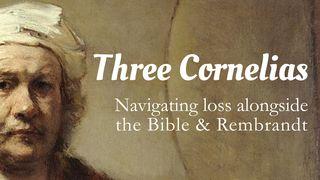12 Passages Every Christian Should KnowSample

The Image: Understanding the Magnificent Design of Humanity
For we are God’s workmanship, created in Christ Jesus to do good deeds that God planned long ago for us so that we would walk in them. Ephesians 2:10
Fearfully and wonderfully … am I made, and designed for nobler ends and uses than for a few days to eat, and drink, and sleep, and talk, and die. My soul is of more value than ten thousand worlds. John Flavel, The Soul of Man
Humans are magnificent creatures. In his sovereign design, God made humans to function uniquely in his created world. God created people as his special image-bearers with a significant divine purpose. Because of this special role in God’s created order, humans have an inherent sense of purpose, identity, and vocation. Created as God’s noble and royal representatives, humans were created to serve God and reveal his good rule to all creation. In a way, no other part of creation can experience, humans have the capacity for vibrant and joyful relationships. The intimacy and ecstasy of human relationship is a wonder to experience but a mystery too profound to fully understand.
Despite the amazing origins of humanity, all people know that something has gone terribly wrong in the world. Although each human birth is a cause for great joy, humans soon recognize that there is something fundamentally broken about human experience. We long for bliss but find it unattainable. We are confused about our core identities as persons. We aimlessly wander in search of meaning, lamenting a sense of purpose that feels just beyond our grasp. Sadly, we experience tension, pain, and hardship in our most intimate relationships. How can we come to terms with this tension—made by divine design but constantly disappointed? We will welcome service and serve others well only if we return to the story of human origins. It is here—where we learn of our divinely given charter—that we can make sense of what it means to be human.
In Genesis 2:4–25 we read about God creating the first humans on day six of creation. As his royal representatives, God created humans to rule over creation, multiply offspring, and fill the earth (cf. 1:26–31). Like a skilled potter, God formed Adam out of the dust of the ground and animated him with his life-giving breath. God set the first human in the garden of Eden to guard and serve it. He permitted him to eat from every tree except the tree of the knowledge of good and evil.
Despite the bliss of paradise, something was not good about God’s creation: Adam, the first man, was alone. Consequently, God instructed Adam to name all the animals in creation. As man performed this task, he could not find a companion suitable for him. As a result, God caused Adam to fall into a deep sleep. He took a rib from Adam and created the first woman. Man and woman would form family units as a way to experience the joy of relationship and companionship while fulfilling God’s purposes on earth.
The story of Adam and Eve is foundational to our understanding of Christian belief. As we come to believe in God as sovereign creator, we will better understand who we are as human beings. As God’s image bearers in creation, we occupy a very special place in God’s world. We learn best about our own nature by returning to our origins before sin entered into the world. We also understand the devastating effects of human sin. As we explore the beautiful story of the first humans, may we come with eyes open to not only see the true nature of humanity but also a hopeful picture of what we can be when redeemed from the ruin of sin.
Scripture
About this Plan

What core truths do you need to thrive in the faith? Around the world, churches are being planted, and new believers are coming into God’s Kingdom every day. Perhaps you're one of them? This four-day reading plan will help you to start building a solid foundation in your faith. The first four passages equip you to embrace the spiritual battle, remember the Creator, understand how we were made in His image, and acknowledge the fall.
More
We would like to thank unfoldingWord for providing this plan. For more information, please visit: https://ufw.io/12passages
Related Plans

Cornerstone: Rebuild, Renew, Restore

How We Gave $1 Million (Without Being Rich)

Journey Through Hebrews

Praying T.A.C.O.S. – a Fresh Way to Talk With God

Three Cornelias: Navigating Loss With the Bible & Rembrandt

Road to Pentecost: Five Days of Spiritual Renewal

Psalms Daily Reading Plan

How to Know Jesus Personally – Start Your Faith Journey Today

The Chosen + BibleProject | Season 5 Reading Plan
